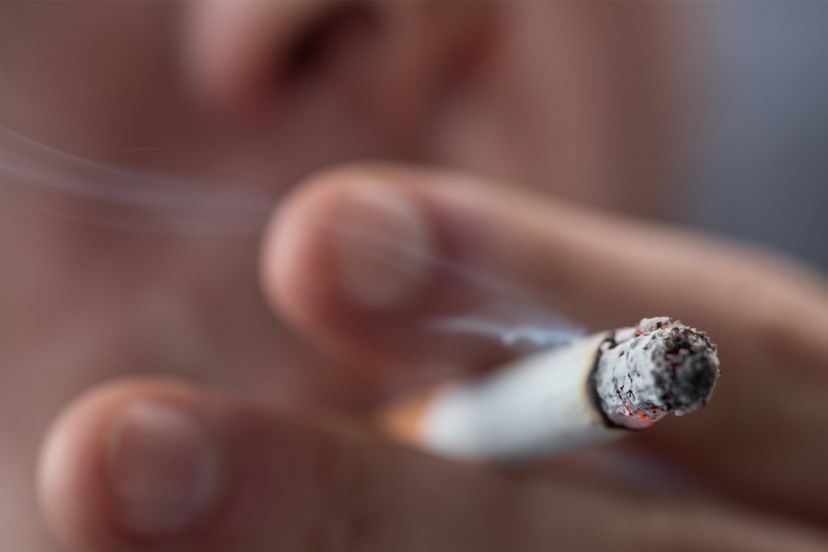
About This Quiz
How savvy are you about smoking? The answers to our 10-question quiz may surprise you. Learn interesting facts about smoking and your health.Cigarette smoking kills about 420,000 people each year. That is more people killed by AIDS, car accidents, homicides, suicides, drug overdoses and fires combined each year.
When nicotine is smoked, it reaches the brain in a matter of seconds. Intravenous drugs are absorbed into the bloodstream before reaching the brain.
The smoke is the most lethal part of the cigarette and contains not only tar, a known carcinogen, but also cyanide, benzene, formaldehyde, wood alcohol and ammonia. Each time smokers inhale, they take these chemicals into their lungs, along with such harmful gasses as carbon monoxide and nitrogen oxide.
Advertisement
Heavy smoking decreases blood flow to a man's penis, which contributes to impotence. Male smokers are also at increased risk for infertility, since smoking reduces sperm density and motility (ability to move).
When you smoke, carbon monoxide enters the bloodstream, which decreases the amount of oxygen your blood can carry to tissues -- including skin. The result is wrinkles and graying of the skin, especially around the mouth.
A smoker's skin doesn't heal as quickly or as well following surgery as that of a non-smoker. Even stopping smoking a few weeks in advance of the surgery, and during the healing process, can make a difference in how well your skin fares.
Advertisement
Children are especially susceptible to secondhand smoke because their lungs are still developing. If a child already has asthma, secondhand smoke will worsen the condition.
Cigar smoke is just as lethal as cigarette smoke. A single, large cigar smoked in one hour can contain as much tobacco as a pack of cigarettes. Even a once-a-day cigar smoker is exposed to the same level of nicotine as that of a pack-a-day cigarette smoker.
According to the American Lung Association, 35 percent of Native Americans/Alaskan Natives are smokers, compared with 26 percent of African Americans and 25 percent of white non-Hispanics. Although smoking has declined among the white non-Hispanic population, tobacco companies have begun to market extensively toward people of color.
Advertisement
Smoking increases your risk of developing osteoporosis -- fragile bones -- by reducing the blood supply to your bones and slowing the production of bone-forming cells.
The nicotine in cigarettes can cause the smoker to have more sugar than usual in his or her blood. The brain may see excess sugar and decrease the hormones and other signals that are perceived as hunger. This curbs your appetite.
Although nicotine's effects are short lived, they can last from 40 minutes to a couple of hours.
Advertisement
Nicotine can improve the functions of important neurons in the brain, slowing the onset of Alzheimer's symptoms.
Only ten percent of the people trying to quit smoking actually succeed. The most successful usually use quitting aids and/or a quitting buddy.
There are tiny hairs, or cilia, working hard to clean out the nasty matter from your bronchial tubes and lungs. Smoking paralyzes these little street sweepers.
Advertisement
Sixty milligrams of nicotine (about the same amount in three or four cigarettes) fully absorbed will kill an adult. Luckily for smokers, not all nicotine is absorbed while smoking.
Skin damage is not reversible.
While smoking, tar coats your tongue and nasal passages. This subdues your senses of taste and smell.
Advertisement
Due to the fact that most alcoholics are suffering from stress and depression, about 80 percent of them are smokers as well.